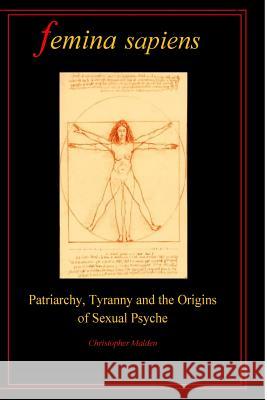Femina Sapiens: Tyranny, Patriarchy and the Origins of Sexual Psyche » książka
Femina Sapiens: Tyranny, Patriarchy and the Origins of Sexual Psyche
ISBN-13: 9781541279247 / Angielski / Miękka / 2017 / 262 str.
In prehistory, females probably invented the first tools; baskets of fibre, wooden cooking sticks, thongs, fish traps of woven twigs. But the evidence has disappeared; only sharp-edged flint arrows and axe heads remain, evidence of weapons for hunting larger prey. It was males of the hominid genus - a human ancestor - who used durable, lethal weapons to secure high value protein, winning higher status commensurate with the 'value' of the prize. Male agression developed in parallel with highly efficient hunting tactics, endurance and hunting skills. Today, both male and female status may reflect this ancient epoch, when male and female roles divided. In the modern era there are echoes of feminine 'sensory intuition', the vital ability to seek out and identify safe nourishment from plant sources. In prehistory, male dominance progressed further; women were no match for the 'linear logic' that proved so successful in sustaining and perpetuating human progress and geographic expansion. Patriarchal structures of early human society propelled this new species faster and further than primate ancestors, cementing a pattern of behaviour that persists today; we dominate the world and all its resources. But humans are in danger of rapidly exhausting the planet's reserves of clean air and water, of accelerating the demise of other, long-established species. Women's sensory intuition is perhaps a safer, more human and humane approach to living life on a crowded Earth. Is it time to recognise the fundamental necessity of returning to the female position and her true status? Not as a surrogate male, but as the original model for human behaviour - at one with nature, the ancient Femina sapiens. senory
Zawartość książki może nie spełniać oczekiwań – reklamacje nie obejmują treści, która mogła nie być redakcyjnie ani merytorycznie opracowana.











